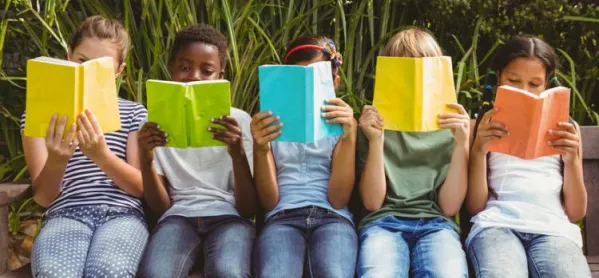A colleague recently admitted that she hated reading anything online and did not consider it to be “proper reading”.
She happily acknowledged that this personal preference was reflected in her classroom, and she goes to great lengths to ensure her classroom is full of a wide selection of enticing, carefully selected books and rich, frequent opportunities for reading.
However, much to her disappointment, a recent survey of the children in her class revealed that many of them still don’t read for pleasure at home. As multiple studies have found, reading for pleasure regularly is vitally important, helping children to develop rich vocabularies and, ultimately, it correlates with improved outcomes at GCSE.
But what do we mean by reading for pleasure?
Choosing the right tools
For me, reading for pleasure is self-chosen, self-directed reading that the child does for themselves, by themselves for enjoyment, or for a purpose (and that might not include ploughing through the next teacher-selected text in the reading scheme).
Ideally, that would be reading a book. But, as the National Literacy Trust highlights, as many as one in eight children may not have a book of their own at home. It’s hard to choose to read if you don’t have anything to read.
A solution came to me when looking out of the window at the end of the school day and seeing the parents all clutching their phones. It struck me that somewhere in this might lie a pragmatic solution to the challenge of ensuring that children have texts to choose to read.
There are many sites where children can access books and reading materials for free. The Book Trust and the National Literacy Trust both produce collections of book apps and e-books for tablets and phones, and the UKLA (UK Literacy Association) presents a Digital Text Award biannually.
Reading research
Research by Professor Teresa Cremin and Dr Natalia Kucirkova has looked into the wealth of online reading material that is available today, and explored what value reading online can add to a child’s learning. They suggest that some apps actually enhance and extend reading, adding a different level of challenge and experience.
So maybe we teachers need to think less about the medium of the text, and more about how we engage with it. Perhaps, it is time to explore and encourage online reading rather than assume that the only book worth reading comes with a paper cover.
All reading is good reading, and if we are going to ensure that we have children who can read and choose to read, maybe we should meet them halfway.
Megan Dixon is director of literacy at the Aspire Educational Trust
Want to keep up with the latest education news and opinion? Follow Tes on Twitter and like Tes on Facebook





